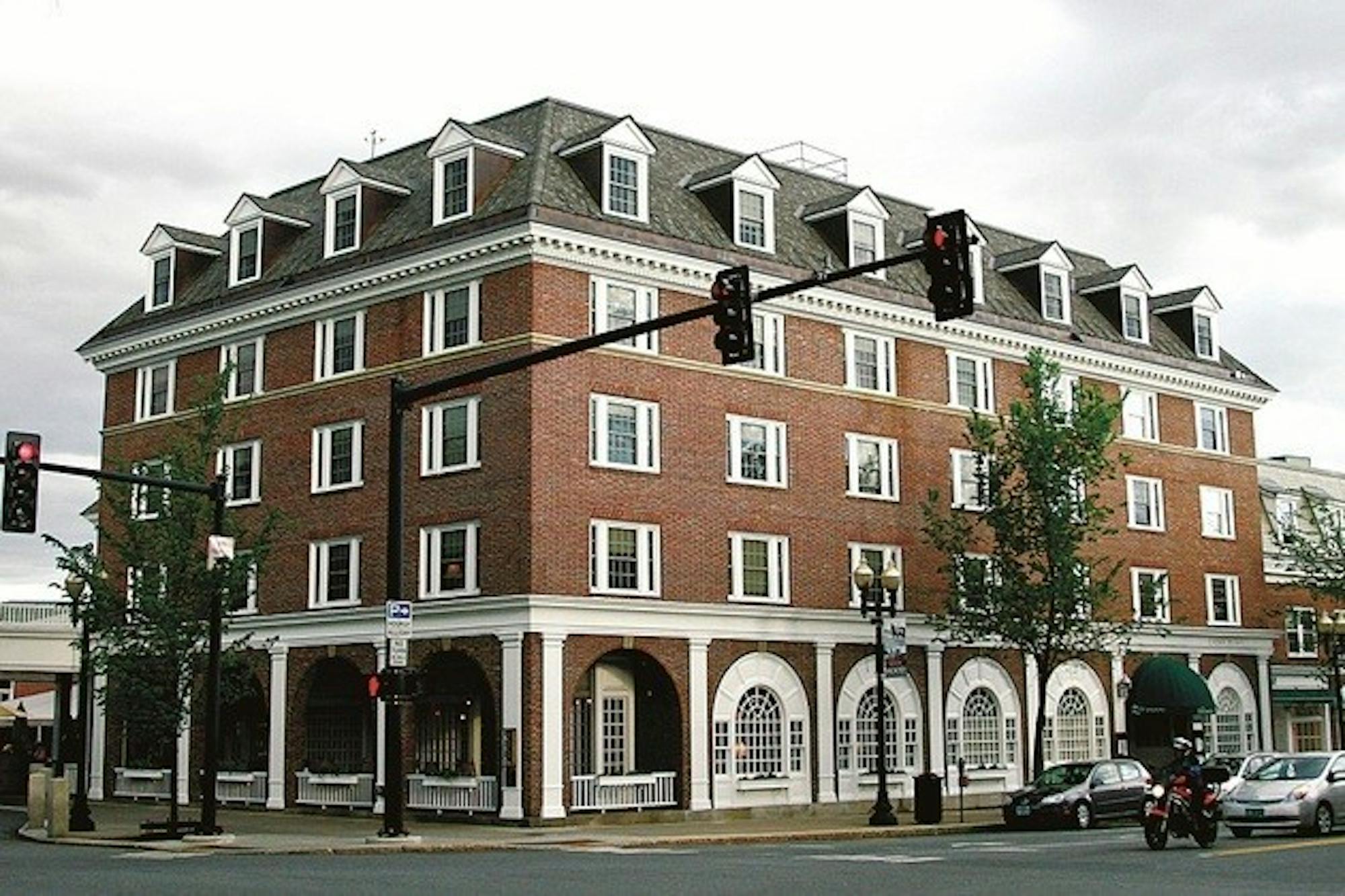From Aug. 4 to 10, Dartmouth hosted the inaugural Tribal Leadership Academy, bringing 18 newly elected or appointed Native American tribal leaders to campus for five days of programming, according to Native American and Indigenous studies professor Bruce Duthu. The leaders participated in discussions about a variety of best governance practices for their respective tribes, including health care delivery and natural resource management.
Rather than approaching issues from a “30,000 foot view,” the sessions focused on concrete policies and discussion, Duthu said in his remarks at an Aug. 4 welcome dinner. Participants — who applied to the TLA with specific projects or ideas in mind to workshop and receive feedback on — were expected to be active contributors to each session. The goal was for every participant to take home concrete ideas they could apply in their communities, Duthu said.
The TLA kicked off on Aug. 4 with the welcome dinner in the Hayward Room in the Hanover Inn, where participants stayed. During the dinner, Provost David Kotz ’86 and vice chairwoman of the Mohegan Tribal Council Sarah Harris ’00 both spoke. During her remarks, Harris spoke about the College’s troubled history in educating Native Americans.
Due to travel delays, however, some participants arrived later in the evening or on the morning of Aug. 5. The program formally began on Aug. 5 with morning and afternoon sessions dedicated to the topic of intergovernmental relations. The morning session focused on tribal-federal relations and was led by Harris and Dartmouth Trustee Hilary Tompkins ’90, H’19.
In an email statement to The Dartmouth, Tompkins wrote that, as Native alumna, she and Harris were excited to return to campus for the TLA.
“Coming back to campus in the role of TLA faculty to share our knowledge with the next generation of tribal leaders brings us full circle in our Dartmouth life journey,” Tompkins wrote. “The TLA embodies the vision of Samson Occom (Mohegan), where Native Americans can convene at Dartmouth and learn from each other for the betterment of our nations and communities.”
Over the following days, sessions took place on several other topics, including economic development, law and order in Indian country and higher education, according to the program website. Teachers for the other sessions included several other Dartmouth Native American alumni.
Dawson Her Many Horses Tu’10, a member of the Rosebud Sioux Tribe, taught in the economic development section.
In an email statement to The Dartmouth, Her Many Horses wrote that while there are “a few executive education programs for tribal leaders,” the TLA “differentiates itself by leveraging Dartmouth’s successful Native alumni community as guest faculty.”
“These instructors move beyond case studies to share practical and actionable steps that tribal leaders can take in areas like intergovernmental relations, economic development and natural resource management,” Her Many Horses wrote.
Her Many Horses and Jay Calhoun Tu’08 — an enrolled citizen of the Cherokee Nation — stayed at the TLA from “the opening to closing ceremony,” while most faculty presenters came only for their session, Duthu said in an interview.
“They have known each other a long time and they were part of our advisory team over the years to help create the TLA,” Duthu said. “They’ve been with us from the beginning to help us shape this idea.”
Duthu said the TLA is a pilot program that falls under the umbrella of the recently proposed Tribal Sovereignty Institute. While the Institute does not yet exist, if created, it would be similar to the existing John Sloan Dickey Center for International Understanding and the Rockefeller Center for Public Policy, he said. It would have its own leadership, staff, mission and budget.
The Institute would serve as Dartmouth’s “principal unit facing outward to Indian country” and would partner with tribal nations on “issues of mutual concern,” Duthu said.
According to Duthu, the Institute was proposed in 2020 during conversations between the Native American and Indigenous studies department and Native American alumni leading up to the 50th anniversary of Dartmouth’s rededication to its mission of educating Native American students.
In light of the anniversary, the NAIS department and Native alumni began working together to develop “an additional pathway to properly mark the [College’s] commitment to Native tribes and to Native peoples,” Duthu said.
College President Sian Leah Beilock expressed her commitment to Native American education and the TLA in her inaugural address last September.
“[The TLA] will provide a place for experienced and newly elected tribal leaders to convene with one another to share best practices, discuss opportunities and challenges facing sovereign tribal nations and engage the expertise of fellow participants, Native alumni and Dartmouth faculty across campus,” Beilock said during her inauguration.
Beilock attended two of the five days of the Academy and returned to give closing remarks and hand out “certificates of completion” at the closing ceremony on Friday, Duthu said.
Participants in the program came from tribal nations across the country, including California, New Mexico, Wisconsin and Oklahoma.
Participants’ travel and accommodation costs were entirely covered by the College, as well as most meals, according to Duthu. The program was funded through donations — including those from more than 75 Native American Dartmouth graduates and the Class of 1953, Duthu said.
According to Duthu, the other pilot program under the Institute was the Tribal Services and Solutions Project — which provides funding for any Dartmouth student who has majored or minored in NAIS to work for one term or up to a year post-graduation in service to tribal communities or government units dedicated to advancing Native peoples’ interests.
Next year, the program will run from July 28 to Aug. 1. Applications to the TLA will open sometime in winter 2025, according to Duthu.




